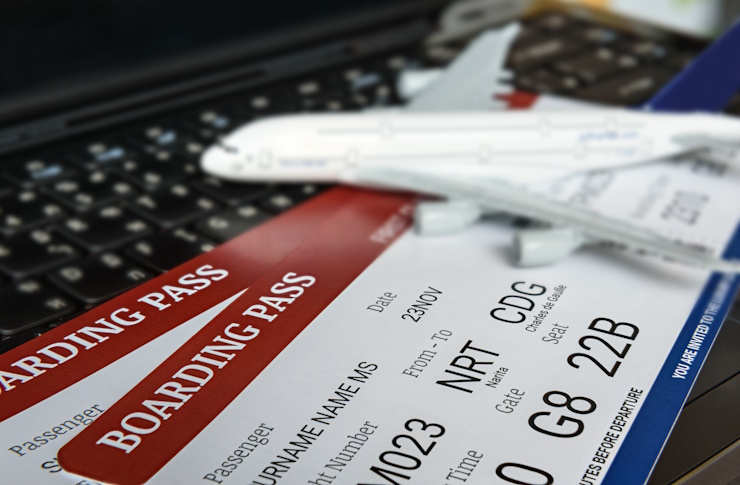Unlocking the Secrets to the Best Travel Deals
Finding exceptional value on your next vacation doesn't have to be a mystery. With the right strategies and knowledge of how the industry works, you can significantly reduce your expenses while maintaining the quality of your experience. From understanding when airlines release their cheapest fares to leveraging technology that alerts you to price drops, smart travelers have developed proven methods to stretch their budgets further than ever before.

The art of securing exceptional value on vacations has evolved dramatically with digital technology and changing industry practices. Modern travelers who understand these shifts can access opportunities that were previously available only to industry insiders or those with extensive experience navigating complex booking systems.
Understanding Travel Deal Platforms
Multiple types of booking platforms serve different purposes in the ecosystem. Online travel agencies aggregate options from various providers, while direct booking through airlines and hotels often provides unique perks. Meta-search engines compare prices across platforms but redirect users elsewhere for actual purchases. Each platform type has distinct advantages: aggregators offer convenience and comparison tools, direct booking frequently includes loyalty benefits and flexible cancellation policies, and meta-search engines provide comprehensive price overviews. Understanding these differences helps travelers choose the most appropriate platform for their specific needs and priorities.
Timing is Everything
Booking timing significantly impacts pricing across all categories. Airlines typically release seats 11 months in advance, with optimal domestic booking windows falling 6-8 weeks before departure for the best balance of availability and pricing. International flights often see better deals 2-3 months ahead. Hotel rates fluctuate based on local events, seasons, and demand patterns. Tuesday afternoons have historically shown lower prices for many routes, though this pattern has become less predictable. Last-minute deals exist but require flexibility with destinations and dates. Weekend bookings often carry premium pricing compared to mid-week departures.
Utilizing Travel Alerts and Newsletters
Automated monitoring systems have revolutionized deal discovery. Price tracking tools monitor specific routes and accommodations, sending notifications when costs drop below set thresholds. Newsletter subscriptions from airlines, hotels, and deal aggregation sites provide early access to sales and error fares. Social media channels and specialized forums share time-sensitive opportunities that disappear quickly. Setting up multiple alert systems increases the likelihood of catching significant price reductions. The key lies in configuring alerts strategically rather than overwhelming yourself with notifications for every possible destination.
Loyalty Programs and Credit Card Rewards
Strategic participation in loyalty programs multiplies value beyond simple point accumulation. Airlines and hotel chains offer status tiers that provide upgrades, priority service, and bonus earning rates. Credit cards aligned with specific programs accelerate point earning through everyday purchases. Transfer partnerships between credit card programs and multiple airlines or hotels increase redemption flexibility. Understanding award charts and sweet spots within programs reveals exceptional value opportunities. Some programs offer more value for domestic redemptions while others excel for international premium cabin awards.
Exploring Off-Peak Travel
Seasonal and weekly timing variations create substantial savings opportunities. Shoulder seasons offer reduced crowds and pricing while maintaining favorable weather conditions. Mid-week departures and returns typically cost less than weekend options. School holiday periods command premium pricing in family-oriented destinations. Business-focused cities often see lower weekend rates when corporate demand decreases. International destinations have distinct high and low seasons that vary by region and local factors. Flexibility with exact dates within preferred timeframes enables access to significantly better pricing.
| Service Type | Provider Examples | Typical Cost Range | Key Features |
|---|---|---|---|
| Flight Booking | Expedia, Kayak, Google Flights | $200-$800 domestic, $500-$2000 international | Price comparison, flexible date searches |
| Hotel Booking | Booking.com, Hotels.com, Direct hotel sites | $80-$300 per night mid-range | Loyalty points, cancellation flexibility |
| Package Deals | Costco Travel, AAA, Vacation Express | $800-$3000 per person | Bundled savings, group discounts |
| Credit Card Rewards | Chase Sapphire, Capital One Venture | Annual fees $95-$550 | Points earning, transfer partners |
Prices, rates, or cost estimates mentioned in this article are based on the latest available information but may change over time. Independent research is advised before making financial decisions.
Successful deal hunting requires patience, flexibility, and systematic approaches rather than relying on chance discoveries. The combination of understanding industry patterns, leveraging technology tools, and maintaining realistic expectations creates the foundation for consistent savings. Regular travelers who implement these strategies often reduce their annual expenses by 30-50% while accessing better accommodations and experiences than they could afford at standard rates.




